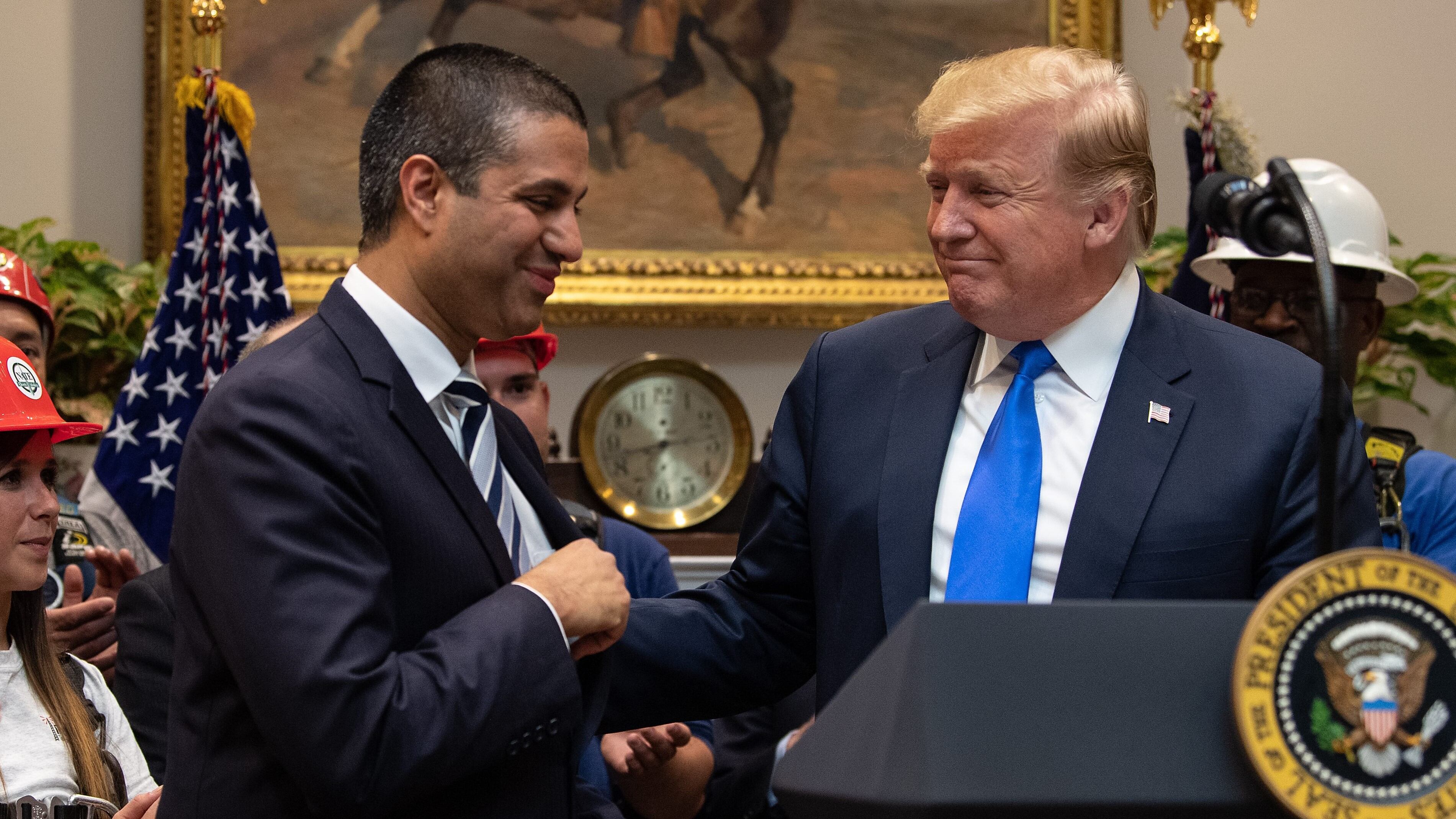Leaders of congressional defense committees, including the chairman of the Senate Armed Services Committee, are frustrated by a draft order in front of the Federal Communications Commission that’s opposed by the Pentagon.
On April 16, the FCC introduced a draft order reallocating a specific portion of the radio spectrum for broadband communications to Ligado Networks, a change that Department of Defense leaders claim will cause "unacceptable” harm to the GPS system. A vote, requiring a simple 3-2 majority, is expected to pass.
The draft order, first reported as happening April 10 by C4ISRNET, was already drawing criticism from members of Congress. Earlier in the week, Senate Armed Services Committee Chairman Jim Inhofe, R-Okla.; the top Democrat on the committee, Sen. Jack Reed of Rhode Island; and Rep. Mac Thornberry of Texas, the top Republican on the House Armed Services Committee wrote a letter to President Donald Trump, urging him to take action to slow the Ligado issue.
RELATED

But the introduction of the draft order — and vocal support for Ligado from FCC Chairman Ajit Pai — kicked off another wave of congressional criticism from defense-focused members of Congress on Thursday evening.
House Armed Services Committee Chairman Adam Smith, D-Wash., sent a letter April 17 to Pai and Secretary of Defense Mark Esper warning that the creation of 5G networks “must not hamper our military’s operational capacity in any way.” (The next generation of network technology expected to boost wireless connectivity is known as 5G.)
“China’s aggressive, global promotion of its 5G companies presents a considerable security challenge that must be addressed. However, Ligado’s proposal, which seeks a portion of spectrum adjacent to that used for Global Positioning Systems, poses an even larger security risk,” Smith said in a statement, adding that the use of L-Band carries an “unacceptable risk that far outweighs the possibility of a 5G network.”
Inhofe, in a new statement, made his displeasure clear.
“I’m not pleased, to say the least, that the chairman is pushing forward with a draft order approving Ligado’s application, especially in the midst of a global pandemic. This action will amplify, rather than ease, current economic challenges,” Inhofe said Thursday. “When people try to push bad policy through in the middle of a crisis, without much coordination with seemingly anyone else, it makes me wonder about their motives.
“I hope that the other commissioners will listen to the near-unanimous objections from the rest of the federal government — not to mention hundreds of industry leaders — and reject the plan. The risks to our national security are far too great to be ignored, and the precedent this would set is astonishingly misguided.”
A Senate Armed Services Committee spokesperson later told C4ISRNET that Inhofe will “explore all options available, including legislation and hearings.” However, the spokesperson said that any solution will involve the Armed Services committees working with the commerce committees in both the Senate and House.
In a Thursday statement, Thornberry joined the call for legislative action, saying: “We must advance 5G development, but this is not the way to do it. The FCC cannot be allowed to overrule the unanimous opinion of America’s national security leaders. If they do, Congress should immediately revisit and revise their authority.”
Ligado is not without supporters in Congress, however. Among the members who tweeted out statements backing the FCC’s move were Sen. Mark Warner, D-Va.; Sen. Mike Lee, R-Utah, who sits on the commerce committee; Rep. Billy Long, R-Mo., a member of the commerce committee; and Rep. Doris Matsui, D-Calif., who sits on the House commerce committee’s Communications and Technology Subcommittee.
If the armed services committees will need to work with the commerce committees on legislation, the presence of Ligado supporters may complicate the situation. And the timetable for any legislative action is unclear, given the coronavirus pandemic.
For years, the DoD and other government agencies have warned that Ligado’s plan would cause what one defense official termed “unacceptable operational impacts to the warfighter.” But some experts have argued the Pentagon is being too stringent with the spectrum near GPS. Sources said the FCC seemed intent on moving forward despite those concerns. The move is driven in part by pressure from the White House to stimulate the economy and help develop America’s 5G capabilities.
Attorney General Bill Barr and Secretary of State Mike Pompeo have issued statements of support for the move.
Joe Gould of Defense News contributed to this report.
Correction: This story initially identified Rep. Bob Latta, R-Ohio, as tweeting support for Ligado. While Latta did tweet out broad support for the FCC increasing national 5G capability, it was not directly related to the Ligado situation. His name has been removed from this article.
Aaron Mehta was deputy editor and senior Pentagon correspondent for Defense News, covering policy, strategy and acquisition at the highest levels of the Defense Department and its international partners.






